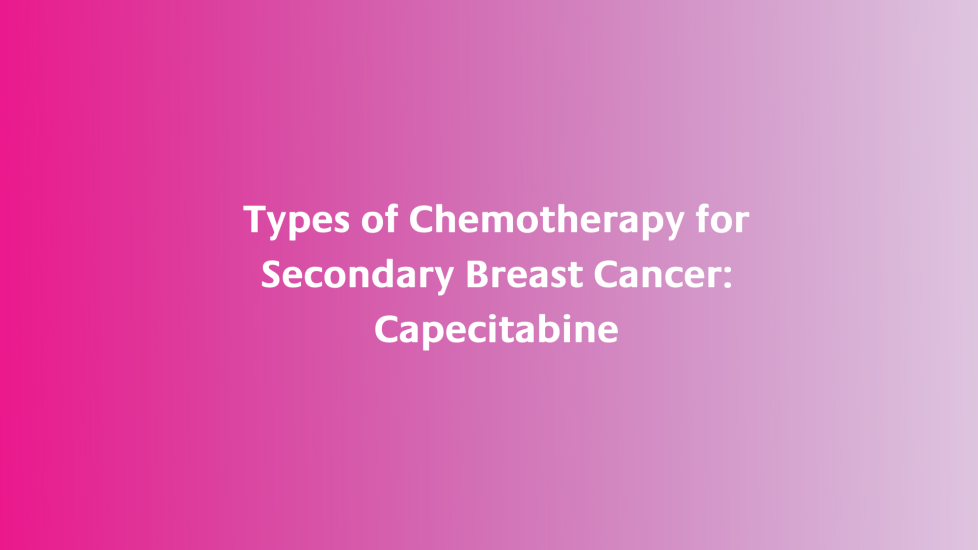15th August 2021 by Jack Allan Education

What is Capecitabine
Capecitabine, also called Xeloda, is a chemotherapy drug used to treat a number of different cancers including secondary breast cancer. It works by slowing or stopping the growth of cancer cells.
How do you take it?
Capecitabine comes in tablets which means you can take it at home. It is normally taken twice a day and the dose you take depends on body size. It may be given on its own, or with other chemotherapy drugs.
In most cases, patients will take capecitabine for 14 days,then stop taking the tablets for 7 days but treatment may differ.
What are the side effects?
As with any treatment, side effects will be different for each person and may also be affected by other drugs or therapy. Common side effects can be low blood cell count, hand-foot syndrome, nausea, vomiting,a sore mouth, loss of appetite, constipation and tiredness and weakness.
You should always speak to your medical team if your side effects are severe or getting worse.